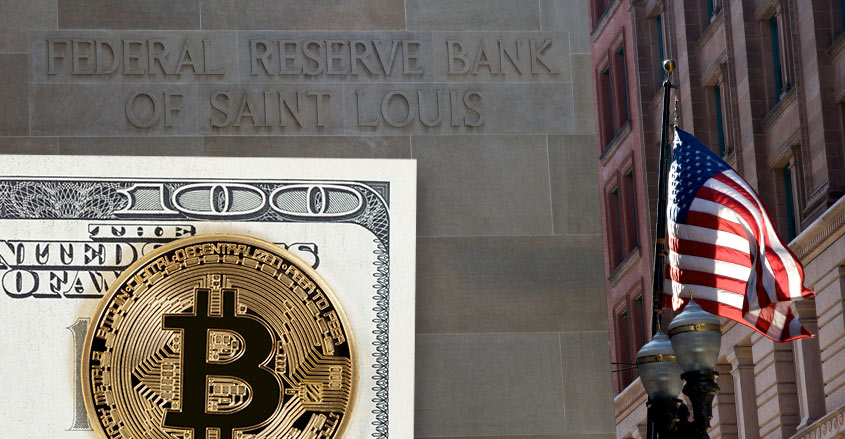Despite calls for regulatory reform and vigilance from critics and alarmists, digital currency has found a defender in the Federal Reserve Bank of St. Louis.
In a blog post, the Federal Reserve of St. Louis compares cryptocurrencies to fiat currencies — in effect, the same as cold hard cash.
Two of the bank’s economists, Aleksander Berentsen and Fabian Schär, offer three arguments to bolster the case that crypto equals cash.
In short, they contend, cryptocurrencies and cash both have no intrinsic value, are in limited supply, and require no intermediary or middle man to finalize transactions.
Just like cryptocurrencies, the economists argue that, “[s]tate monopoly currencies, such as the U.S. dollar, the euro, and the Swiss franc, have no intrinsic value either.”
In fact, they say, U.S. cash is just a blend of 75% cotton and 25% linen.
Fiat currencies only have a transactional value bestowed by a government, central bank or financial regulatory authority.
All fiat currencies, too, have a limited supply dictated by financial market conditions and whether central banks decide to mint more money.
Finally, unlike with credit card payments, no middle man or intermediary is required for cash or cryptocurrency transaction completion.
While the Federal Reserve of St. Louis’ stance on cryptocurrencies is newsworthy, it remains to be seen what effect it will have on the legislative fortunes related to cryptocurrency use.
The bank’s embrace of cryptocurrencies is far from the stance of most financial authorities.
Rather, many are wary of cryptocurrencies’ potential to destabilized global financial infrastructures long built to accommodate fiat.
Intrinsic value
Bitcoin and other cryptocurrencies are not minted, controlled nor regulated by any financial or governmental authority. Instead, they are wholly created anonymously on computers via blockchain mining.
What’s more, cryptocurrencies are not backed by gold or any other analogous commodity. Basically, cryptocurrencies feature no inherent intrinsic value as a form of currency.
That makes them a kind of cash.
The trust that people have in governments, central banks and financial regulatory bodies is what intrinsically gives fiat currencies its value.
According to the Federal Reserve of St. Louis then, cryptocurrencies are just the evolved, digital version of fiat currencies we have long trusted and used.
Will that work in practice? We’ll find out.


